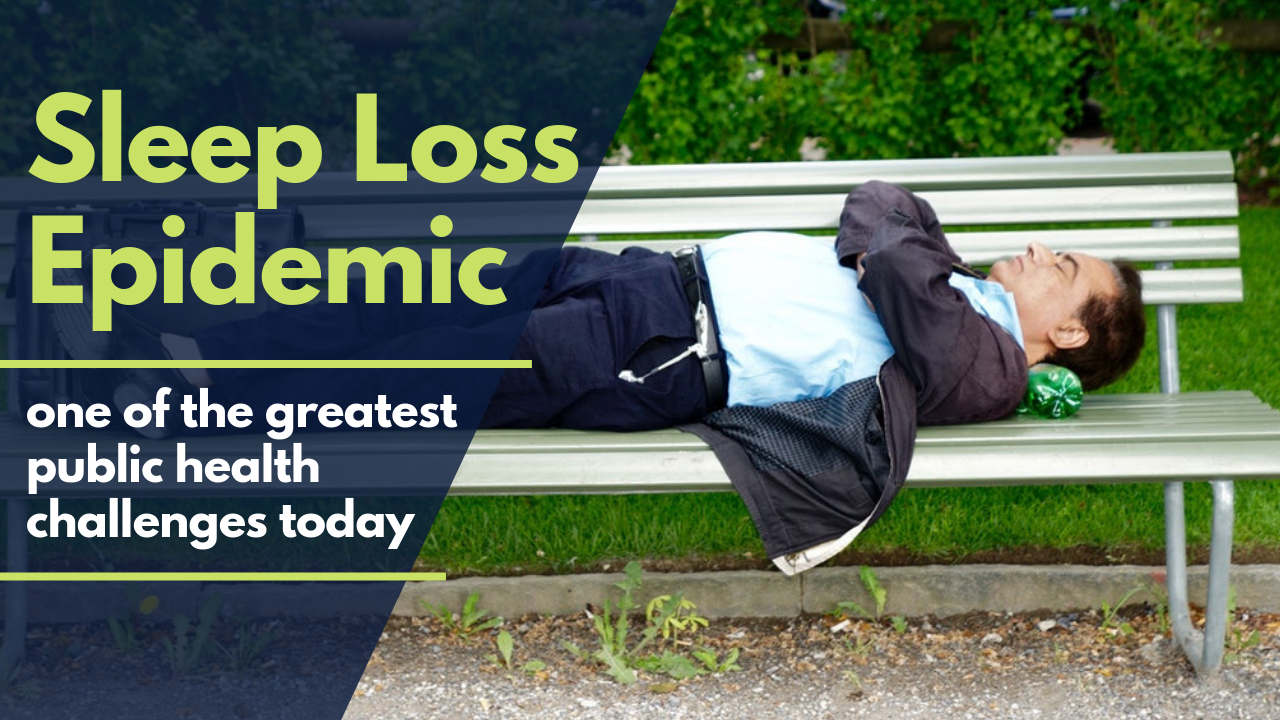- One of the greatest health challenges facing us today is not smoking or obesity, but lack of sleep.
- Brain scientist Matt Walker claims that the decimation of sleep is having a catastrophic impact on our wellness, and work-related stress is usually to blame.
- In Walker’s words, “sleep is a nonnegotiable biological necessity”, and we need sleep in order to successfully manage and prevent stress.
During a TED Talk, brain scientist Matt Walker argued that sleep is our “life-support system” and that “the decimation of sleep throughout industrialized nations is having a catastrophic impact on our health, our wellness.” According to Walker, we’re going through “a silent sleep loss epidemic”, one that is “fast becoming one of the greatest public health challenges we face in the 21st century.”
There are various causes for sleep deprivation, including many diseases. But one cause that tends to affect many individuals is stress and lack of stress management abilities. And, unsurprisingly, one of the top common causes of stress is work and the workplace.
Suggested Reading: “Can Your Workplace Design Help Reduce Stress?”
The problem worsens when stress affects an individual’s sleeping patterns, which then leads to even more stress.
According to the American Institute of Stress, the longer we remain stressed, the less we are able to get proper sleep. When we’re stressed, our nervous system causes our bodies to release stress hormones: cortisol, adrenaline, and noradrenaline. These hormones play a big role in the fight or flight instinct.
When people are unable to manage and cope with stress, it leads to chronic stress — or in other words a constant state of fight or flight. The problem with this is that “when your body is experiencing chronic stress, it thinks it’s in a state of perpetual danger and that it shouldn’t be sleeping! You might be able to fall asleep but not stay asleep, and you might wake up frequently in the night.”
From here on, it becomes a vicious circle between stress and sleep, where one deprives the other.
Suggested Reading: “A Different Approach towards Workplace Wellness: Taking a Nap is Easier than Going to the Gym”
During his TED Talk, Walker presented results from a study that showed how sleep deprivation affects memory. The study grouped individuals into one of two groups: one that would get eight hours of sleep and one that would stay awake all night.
The next day, they placed participants inside an MRI scanner and had them try and learn new facts while taking snapshots of their brain activity in order to test how effective their learning ability was. The study found that “when you put those two groups head to head what you find is a quite significant 40% deficit in the ability of the brain to make new memories without sleep.”
Walker made the analogy that sleep deprivation shuts down your memory inbox, and any new incoming files were being bounced.
This has a significant impact on a person’s professional life, especially if they’re dealing with stressful or critical situations. If you’re not able to absorb, understand, and analyze new information, you’re not properly equipped to make decisions.
Unfortunately, the negative effects of lack of sleep aren’t confined to sleep deprivation. Restricting your sleep time to four hours in one single night can also have negative effects on your physical and mental health. According to Walker, getting only four hours of sleep reduces our immune cell activity by 70%.
A different study titled “Association between Sleep Duration and Perceived Stress: Salaried Worker in Circumstances of High Workload” found that “short sleep duration might be associated with an increased odds ratio for perceived stress compared to adequate sleep duration.” This finding was particularly pronounced among high specialized roles and office workers.
So the less you sleep, the more stressed you are. And the more stressed you are, the less you sleep. It’s quite the dilemma.
In order to be successful at work, you need to maintain a healthy work-life balance, and to lead a healthy life you need sleep. In Walker’s words, “sleep is a nonnegotiable biological necessity”. We need sleep in order to successfully manage and prevent stress.














